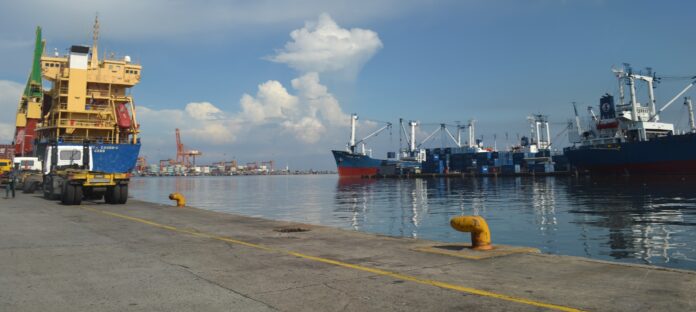-
President Rodrigo Duterte has certified as urgent three bills, including changes to the Public Service Act (PSA)
-
Passage of Senate Bill 2094 will, in effect, allow 100% foreign ownership in services no longer defined as public utility, including transportation
-
The Foreign Investments Act and Retail Trade Liberalization Act are the two other measures certified as urgent
-
SB 2094 is pending second reading while its counterpart measure in the Lower House has passed third and final reading in March 2020
-
Domestic shipping lines are against the entry of foreign players in local shipping, saying this would hurt local carriers
President Rodrigo Duterte has certified as urgent three measures, one of which seeks to amend the Public Service Act (PSA), whose passage will allow 100% foreign ownership in services that will no longer be defined as public utility, including transportation.
Apart from Senate Bill 2094, also certified for immediate passage are the amendments to the Foreign Investments Act (FIA) and the Retail Trade Liberalization (RTL) Act.
In an April 12 letter to Senate president Vicente Sotto III, Duterte said the measures will “address the immediate and continuing need for legislative reforms to provide a more conducive investment climate, increase job opportunities, foster more competition and further support the country’s economic growth.”
Amendments to the PSA, FIA and RTL form part of the list of priority measures identified by the Legislative-Executive Development Advisory Council for passage before the current administration ends in 2022.
SB 2094 is pending second reading while its counterpart measure in the Lower House, House Bill 78, has passed third and final reading in March 2020.
Prior to Duterte’s certification, the Senate Public Services Committee (SPSC) last March already endorsed approval of SB 2094, which takes into consideration HB 78.
READ: Senate committee bats for passage of Public Service Act
In a sponsorship speech last March 10, SPSC chair Senator Grace Poe said the proposed amendment of the 85-year-old Commonwealth Act No. 146, or the PSA, aims to clear “the ambiguity surrounding the interchangeably used terms ‘public utility’ and ‘public service,’” and limit public utility to just three services—distribution of electricity; transmission of electricity; and water pipeline distribution and sewerage pipeline systems.
To be excluded from the definition of public utility are transportation, telecommunications, broadcasting, and other public services. Exclusion will effectively allow 100% foreign ownership in these industries as they will no longer be considered public services or be covered by the 60%-40% ownership principle under the Constitution.
Local industry opposition
Domestic shipping lines are opposed to the entry of foreign players in the domestic shipping industry, saying this would hurt local carriers, especially small- and medium-sized shipping lines.
READ: 100% foreign ownership in local shipping to wipe out small carriers, exec warns
Philippine Coastwise Shipping Association, Inc. president Paul Rodriguez said domestic ship owners “would be very much affected” if the bill is passed as they would be unable to compete with foreign players, who have the advantage of availability of capital in their own countries.
Rodriguez said domestic shipping is actually very competitive if one considers that all of these costs form the door-to-door package, instead of comparing local costs to the freight rates of international shipping lines. Customers should unbundle the costs to have an “apples-to-apples” comparison between domestic and international shipping rates, he continued.
Even economies like Japan, South Korea, and the United States never opened up their cabotage for reasons of national security and economy, Rodriguez pointed out. Cabotage is the policy of restricting the operation of sea, air, or other transport services within or into a particular country to that country’s own transport services.
In addition, Rodriguez said opening the domestic transport industry could allow entities that pose threats to national security or are involved in smuggling to “just come in and go if they [foreign carriers] are not controlled by the Philippine government’s maritime authority.”
The Philippine Inter-Island Shipping Association and the Philippine Liner Shipping Association have also been asking Congress to include domestic shipping in the coverage of public utilities in the bill amending the PSA.
READ: Retain foreign ownership restriction in domestic shipping, industry associations insist
The groups also cited national security as a reason, and stressed that domestic shipping is a strategic industry for an archipelagic country in times of national disasters, response and reconstruction, potential conflict over the West Philippine Sea or war, smuggling, drugs, illegal fishing, and piracy.
The groups also said that opening up transportation “will not bring down domestic transport costs so long as foreign corporations will be subjected to the same operating conditions as domestic transport operators.” They noted that among the contributing factors to the high transport cost of domestic trade are the high operational costs, taxes and regulatory fees.





